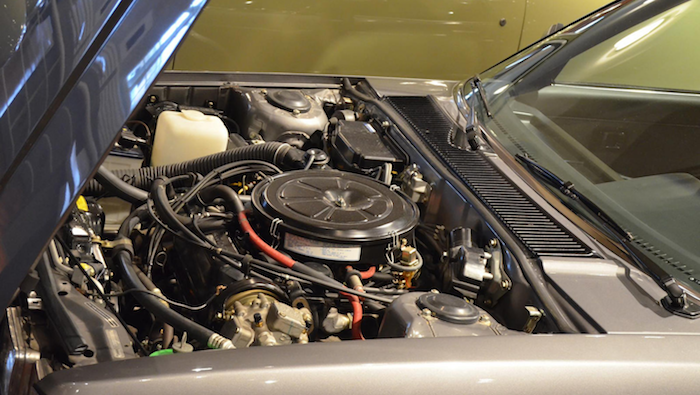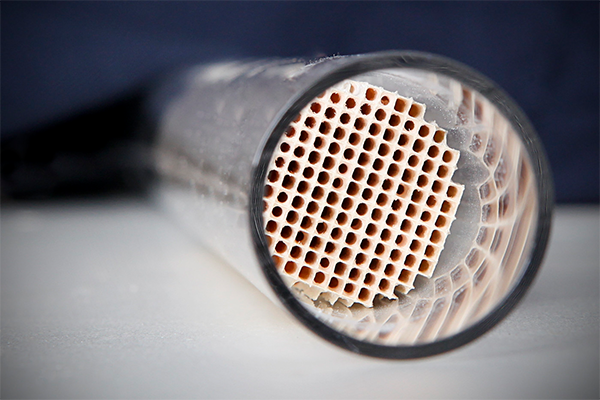Gassing up isn't as simple as it used to be. The following questions and answers can help clear up some of the confusion around choosing the right gas for your vehicle.

Source | Upslash
Gas at “name brand” stations vs "discount" stations
In the early days, gas was dispensed from a pump with a glass globe on top so motorists could check the “quality” of the product. Gas quality today, however, is regulated and legally required to contain certain levels of detergents, octane, ethanol and other ingredients. While “name brand” gas might contain more engine-cleaning detergents, there’s a good chance that the gas found at “off-brand” stations was actually produced by the same name-brand manufacturers you know. So buy gas where it’s convenient for you and easiest on your wallet and comfort level.
Do I need to spend more money on a higher grade fuel?
There are generally three grades of unleaded gasoline available at nearly all U.S. gas stations. The price per gallon rises in tandem with the fuel grade. Depending on what you drive, these grades — or octane ratings — matter. For starters, high-performance engines need higher octane fuel. That’s because your engine was designed to generate higher compression within the cylinder and increased power. Higher pressure and lower octane aren’t a good match. High-performance engines that require a higher-octane fuel and don’t get it will deliver decreased power and performance.
To help determine what octane rating your vehicle needs, start by looking in the owner’s manual. Some drivers also determine whether they need a higher octane fuel through experimentation. If the vehicle runs great on 87 with no knocking, pinging, or performance issues, and choosing the lower grade fuel doesn’t run afoul of any warranty requirements or specific manufacturer guidelines, why spend the extra money on a higher octane fuel?
If the vehicle manufacturer doesn’t specify high octane and there aren’t any performance issues, save some money by sticking with a lower octane fuel.
Is the gas I use causing the engine to knock?
First, it's important to understand why your engine is knocking, and why it's a concern. As the octane rating goes up, so too does the gasoline’s ability to withstand compression without spontaneously detonating or igniting. In gasoline engines, the air/fuel mixture inside the cylinder is supposed to ignite only when a small flame is created by the spark plug. As that small flame gradually grows and spreads out within the cylinder, the air/fuel mixture should ignite in one detonation. Problems arise, mainly in the form of an audible “knock,” when more than one detonation occurs within the cylinder.
That knocking can be more than just an annoyance. It robs your engine of power and can destroy it quickly or over time. Higher octane fuels better withstand the increased pressure or compression, preventing spontaneous detonation. But gasoline isn't the only thing that can cause engine knocking or spontaneous detonation. Take a look at these additional considerations:
- Environment - Areas with high temperatures and low humidity can increase knocking and the need for higher octane.
- Vehicle age - Older vehicles can have a buildup of carbon within the cylinder, creating hot spots that lead to pre-ignition. These deposits can also decrease cylinder volume leading to higher pressures.
- Malfunctioning EGR system - This increases cylinder temperature.
- Malfunctioning spark plug
- Increased load - Do you use your vehicle for towing or steep uphill climbs and frequently see higher RPMs?
- Malfunctioning cooling system - Higher engine operating temperatures contribute to knocking.
To better understand this topic, read up on why engines misfire.
Is "unleaded" gas my only option?
Many drivers will remember the days of having to choose between leaded and unleaded fuel. Around the 1920s, a partnership between GM and ESSO (now Exxon) discovered that adding tetraethyl lead (TEL) to fuel helped raise the octane ratings above what they were listed at by increasing the compression ratio. Leaded fuel also came with the added benefit of helping protect soft valve seats, like those found in many 1970s-era vehicles and earlier. During engine operation, heat from combustion gases causes valves to temporarily weld themselves to valve seats, if only for a tiny fraction of a second. Each time the weld between the two is broken, minute metal pieces from the soft valve seat are torn away, attaching to the valve.
Over time, these deposits oxidize and further harden, inflicting damage on the valve seat as the valve continually hammers down. Lead in fuel helped prevent the two from welding, reducing valve seat recession or wear. It was soon discovered, however, that the lead gasoline spewing from the exhaust of millions of vehicles worldwide was toxic for the environment, not to mention devastating to human health. As a result, leaded gas was gradually phased out in the 70s.
How do you take care of your 1970's muscle car, then? In the absence of leaded fuel, you have two options. You can install hardened valve seats or replace a cast-iron head with an alloy one. Also, don’t overwork your engine; be sure to turn consistently high RPMs, prevent your engine from getting too hot and add a lead substitute to your gas tank, which contains anti-wear properties.
What about fuel additives?
Consider using one of the countless octane boosters available, most of which are designated as being safe for turbos, oxygen sensors and catalytic converters. You can also use a fuel stabilizer like Sea Foam. Both products will improve performance and prolong the life of your engine.
Any tips for saving on gas?
Become a Speed Perks Member with Advance today! If you already are one, then you're in luck — you've already been automatically signed up for Advance's new gas rewards program. Visit your local Shell to save on your next fill up with unlimited, stacking rewards.









